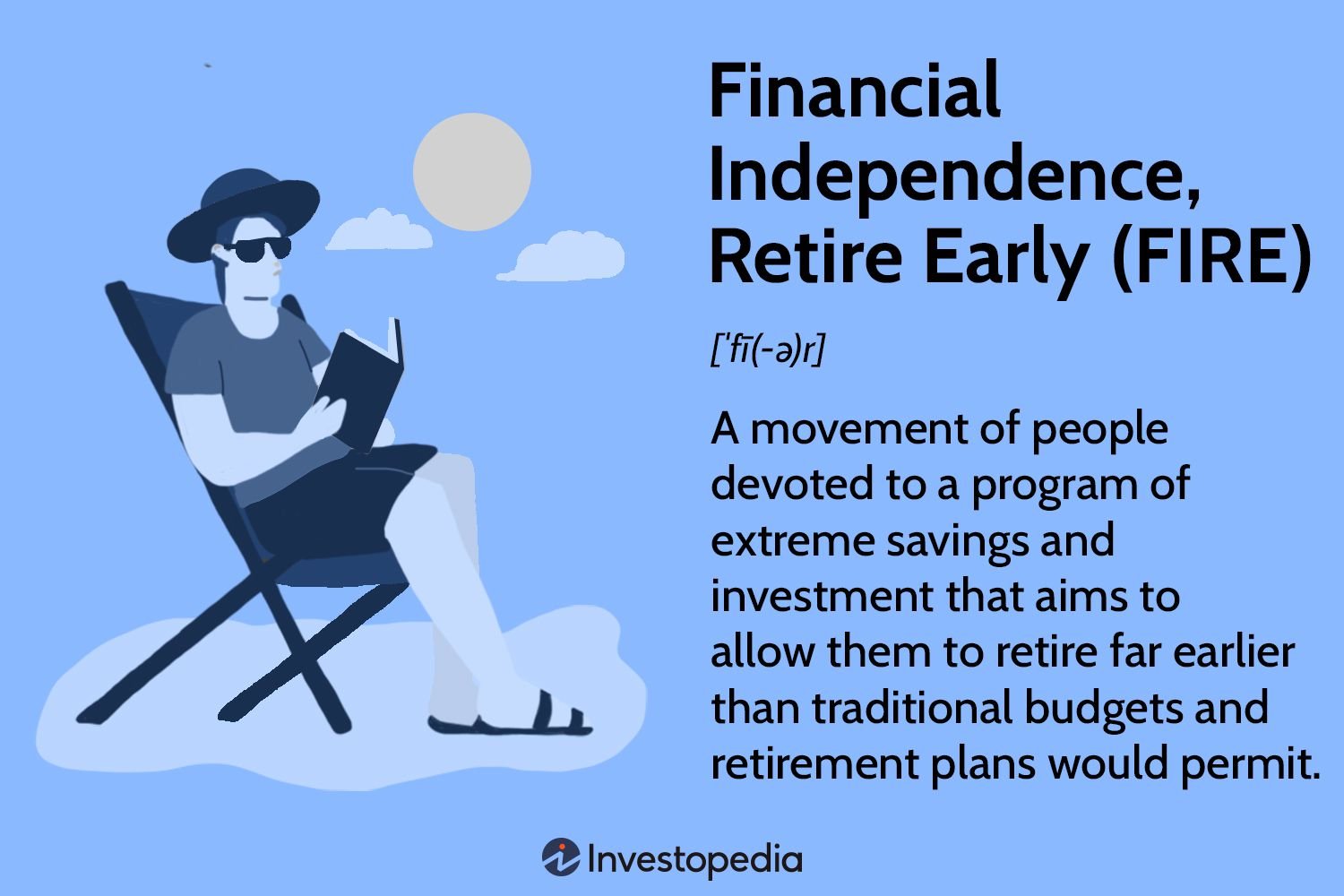Are you wondering how to financially plan for extended family care? Managing the financial aspects of caring for your loved ones can be a challenging task, but with proper planning and foresight, it is definitely achievable. In this blog article, we will guide you through practical steps and strategies to ensure you are well-prepared and organized when it comes to supporting your extended family members. From understanding expenses to exploring potential resources, we’ve got you covered on how to financially plan for extended family care. Let’s delve into the details!
How to Financially Plan for Extended Family Care
Providing care for extended family members can be a fulfilling and meaningful responsibility, but it can also come with financial challenges. Whether you are caring for aging parents, siblings with special needs, or other relatives, it’s essential to have a solid financial plan in place. This guide will help you navigate the complexities of extended family care and provide practical strategies for managing the associated expenses.
1. Assess Your Current Financial Situation
Before you can create a financial plan, it’s important to understand your current financial situation. Take the following steps to assess your finances:
- Evaluate your income: Determine your monthly income from all sources, including wages, investments, and government benefits.
- Calculate expenses: Create a comprehensive list of your monthly expenses, including housing, transportation, utilities, groceries, healthcare, and any existing caregiving expenses.
- Analyze savings and debt: Consider your savings, investments, and outstanding debt. Evaluate how much you can allocate towards extended family care without compromising your own financial well-being.
This assessment will provide a clear picture of your financial capabilities and help you determine how much financial support you can offer your extended family member.
2. Research Government Assistance Programs
Explore various government assistance programs that provide financial aid for extended family care. These programs can ease the financial burden and support you in meeting your loved one’s needs. Some programs to consider include:
- Medicaid: Medicaid offers healthcare coverage for low-income individuals, including long-term care services. Eligibility criteria may vary by state, so research the specific requirements in your area.
- Social Security Disability Insurance (SSDI): If your extended family member has a disability that prevents them from working, they may be eligible for SSDI benefits. This program provides financial assistance to individuals with disabilities and their dependents.
- Supplemental Security Income (SSI): SSI provides cash assistance to people with limited income and resources who are disabled, blind, or aged 65 or older. It can help cover basic needs like food, clothing, and shelter for eligible individuals.
By understanding the eligibility criteria and benefits of these programs, you can determine which ones may be applicable to your situation and provide much-needed financial support.
3. Create a Budget
Developing a budget is crucial when planning for extended family care. It helps you allocate your resources effectively and ensures that you have enough funds to cover essential expenses. Here are some steps to create a budget:
- List all income sources: Include your regular income, government benefits, and any additional income you receive.
- Identify fixed expenses: These are expenses that remain relatively constant each month, such as rent or mortgage payments, utilities, and insurance.
- Account for variable expenses: Variable expenses can fluctuate from month to month, such as groceries, transportation, and healthcare costs.
- Allocate funds for extended family care: Estimate the additional expenses associated with caregiving, including medical bills, home modifications, medications, and transportation. Ensure you have enough funds to cover these costs without compromising your own financial stability.
- Track your spending: Monitor your actual expenses regularly and make adjustments to your budget as needed.
Creating a budget allows you to plan for both short-term and long-term financial obligations related to extended family care and helps you avoid financial strain.
4. Research Available Community Resources
Communities often provide resources and services that can assist in caring for extended family members. These resources can vary depending on your location, so it’s essential to research what is available in your area. Consider the following options:
- Senior centers: These centers often offer programs, services, and social activities for older adults. They may also provide respite care services, allowing you to take a break while your loved one receives care.
- Support groups: Joining a support group can provide emotional support, guidance, and valuable information regarding available resources and financial assistance programs.
- Non-profit organizations: Many non-profit organizations offer financial assistance, counseling, and support services for caregivers. Research organizations that specialize in the specific needs of your extended family member.
- Government-funded programs: Check if your local government offers programs such as transportation services, meal delivery, or subsidized housing for extended family caregivers.
By tapping into community resources, you can access valuable support networks and potentially reduce the financial burden of extended family care.
5. Consider Long-Term Care Insurance
Long-term care insurance is an option worth exploring when planning for extended family care. This type of insurance covers the costs associated with long-term care services, including home care, assisted living, and nursing home care. Here are some key considerations:
- Research insurance providers: Compare different long-term care insurance policies, considering factors such as coverage, premium costs, waiting periods, and benefit duration.
- Consider the age and health status of your extended family member: Premiums are typically based on the insured person’s age and health at the time of enrollment. The younger and healthier they are, the lower the premiums may be.
- Evaluate policy features: Review the policy features, including coverage limits, eligible services, elimination periods, and inflation protection options. Ensure that the policy aligns with your extended family member’s specific care needs.
- Assess your financial ability to afford premiums: Long-term care insurance premiums can be expensive. Evaluate your financial situation to determine if you can comfortably afford the premiums in the long run.
- Consult with a financial advisor: Discussing long-term care insurance options with a financial advisor can help you make an informed decision based on your unique circumstances.
Long-term care insurance can provide financial security and peace of mind, but it’s essential to carefully consider the policy details and your own financial situation before making a decision.
6. Review Legal and Financial Documents
Ensure that you and your extended family member have the necessary legal and financial documents in place. These documents will help protect their assets, clarify their healthcare wishes, and designate decision-makers. Some documents to consider include:
- Power of Attorney: A power of attorney grants a designated person the authority to make legal and financial decisions on behalf of the individual. This can be essential for managing their affairs if they are unable to do so themselves.
- Healthcare Proxy or Medical Power of Attorney: This document designates someone to make healthcare decisions for the individual when they are unable to do so. It ensures their medical preferences are honored.
- Living Will: A living will outlines an individual’s wishes regarding end-of-life medical treatment. It provides guidance to healthcare professionals and loved ones in difficult situations.
- Will or Trust: Ensure that your extended family member has a valid will or trust in place to protect their assets and provide clear instructions for the distribution of their estate.
- Beneficiary Designations: Review and update beneficiary designations on financial accounts, insurance policies, and retirement plans to reflect their current wishes.
- Legal Consultation: Consult with an attorney specializing in elder law or estate planning to ensure all necessary legal documents are in order.
Having these documents in place can help streamline financial and healthcare decision-making processes and ensure your extended family member’s wishes are respected.
7. Explore Tax Benefits and Deductions
Caring for an extended family member can have tax implications, but there are also potential tax benefits and deductions available to ease the financial burden. Consider the following options:
- Dependency Deduction: If you provide more than half of your extended family member’s financial support and they meet certain criteria, you may be eligible to claim them as a dependent on your tax return. This can result in significant tax savings.
- Medical Expense Deductions: You may be able to deduct certain medical expenses related to extended family care on your tax return. Keep track of medical bills, prescription costs, and other qualified expenses to potentially reduce your tax liability.
- Child and Dependent Care Credit: If you pay for caregiving services while you work or actively look for work, you may qualify for the Child and Dependent Care Credit. This credit can help offset a portion of your out-of-pocket caregiving expenses.
Consult with a tax professional or accountant to ensure you are aware of all available tax benefits and deductions applicable to your situation. They can guide you on how to maximize your tax savings and provide accurate advice based on current tax laws.
8. Consider Legal Aid and Pro Bono Services
If you require legal assistance or financial guidance but are unable to afford traditional legal services, explore options for legal aid and pro bono services. These services provide free or low-cost legal support to individuals who meet specific income requirements. Some resources to consider include:
- Legal aid organizations: Search for local legal aid organizations that offer services related to elder law, estate planning, or caregiver support.
- Pro bono programs: Some law firms or individual attorneys offer pro bono services to individuals in need. Contact local law firms or legal associations to inquire about pro bono opportunities.
- Law school clinics: Law schools often have legal clinics where law students, supervised by experienced attorneys, provide legal services to the community at reduced rates or for free.
These resources can help you navigate complex legal matters associated with extended family care without placing additional financial strain on yourself or your extended family member.
9. Explore Caregiver Support Programs
Caring for an extended family member can be emotionally and physically demanding. It’s crucial to prioritize self-care and seek support from caregiver support programs. These programs offer resources and assistance to caregivers, including financial aid. Consider the following options:
- Respite Care: Respite care programs provide short-term relief for caregivers. They offer temporary care for your loved one, allowing you to take a break and attend to your own needs.
- Caregiver Support Groups: Joining a caregiver support group allows you to connect with others facing similar challenges. These groups provide emotional support, guidance, and valuable information about available financial assistance programs.
- Caregiver Training and Education: Some organizations offer training and educational programs for caregivers. These programs can enhance your caregiving skills and help you navigate the financial aspects of extended family care more effectively.
- Financial Assistance Programs: Explore organizations or foundations that provide financial assistance specifically for caregivers. These programs can help cover expenses related to extended family care.
Taking advantage of caregiver support programs not only provides you with valuable resources but also helps prevent caregiver burnout and ensures you can continue to provide quality care for your extended family member.
10. Continuously Reevaluate and Adjust Your Plan
As your extended family member’s needs and your financial situation evolve, it’s important to regularly reevaluate and adjust your financial plan. Life circumstances can change, and staying flexible allows you to adapt and ensure the financial well-being of both yourself and your loved one. Consider the following practices:
- Annual financial review: Schedule an annual review of your financial plan to assess its effectiveness and make necessary adjustments.
- Monitor changes in government programs: Stay informed about changes in government assistance programs that may impact your extended family member’s eligibility or the benefits they receive.
- Communicate openly: Maintain open communication with your extended family member, other family members involved in their care, and any financial or legal professionals assisting you. Regular communication ensures everyone stays informed and can contribute to decision-making processes.
- Seek professional advice: When in doubt or facing complex financial situations, consult with financial advisors, accountants, or elder law attorneys to receive expert guidance tailored to your unique circumstances.
By continually reassessing and adjusting your financial plan, you can ensure that your extended family member’s care needs are met while maintaining your financial stability.
In conclusion, financially planning for extended family care requires careful consideration and proactive measures. Assess your financial situation, research government assistance programs and community resources, create a budget, and explore insurance options. Review legal and financial documents, take advantage of available tax benefits, and consider legal aid and pro bono services if needed. Additionally, explore caregiver support programs and continuously reevaluate and adjust your plan as circumstances change. With a well-thought-out financial plan, you can provide the care your extended family member needs while safeguarding your own financial security.
How to Write a Financial Plan | Family Financial Planning Guide
Frequently Asked Questions
Frequently Asked Questions (FAQs)
Question 1: How can I financially plan for extended family care?
When it comes to financially planning for extended family care, there are several steps you can take:
- Assess your current financial situation and determine how much you can comfortably contribute towards extended family care.
- Create a budget that incorporates the additional expenses associated with extended family care.
- Consider purchasing long-term care insurance to help cover the costs of care.
- Explore government programs or benefits that may be available to you or your family members.
- Explore financial assistance options such as grants or scholarships for educational expenses.
- Work with a financial advisor to develop a comprehensive plan that includes saving for future medical expenses and retirement.
Question 2: What are the potential costs involved in extended family care?
The costs of extended family care can vary depending on various factors such as the type and level of care needed, location, and individual circumstances. Some potential costs to consider include:
- Medical expenses, including doctor visits, medications, and treatments.
- Home modifications or assisted living facility fees.
- Caregiver salaries or fees if professional assistance is required.
- Transportation costs for medical appointments or daily activities.
- Additional food, household supplies, and personal care items.
Question 3: Are there any tax benefits or deductions available for extended family care expenses?
Yes, there are potential tax benefits and deductions available for extended family care expenses. Depending on your country and specific circumstances, you may be eligible for deductions related to medical expenses, dependent care, or caregiver expenses. It is recommended to consult with a tax professional or accountant to understand the specific tax benefits applicable to your situation.
Question 4: How can I ensure I have enough savings for extended family care?
To ensure you have enough savings for extended family care, consider the following steps:
- Start saving early and consistently.
- Create a separate savings account specifically dedicated to extended family care expenses.
- Automate your savings by setting up regular contributions.
- Monitor your savings progress regularly and adjust your savings goals if necessary.
- Consider investment options to potentially grow your savings over time.
Question 5: What are some alternative funding sources for extended family care?
If you are looking for alternative funding sources for extended family care, here are a few options to consider:
- Family support: Discuss the possibility of sharing the financial responsibilities with other family members.
- Community resources: Explore local programs, nonprofits, or support groups that may provide assistance or resources.
- Government assistance: Research government programs or benefits that may be available to individuals in need of extended family care.
- Financial aid: Investigate potential grants, scholarships, or financial aid options specifically designed for extended family care situations.
Question 6: How can I protect my own financial future while caring for extended family members?
To protect your own financial future while caring for extended family members, consider the following strategies:
- Build an emergency fund for unexpected expenses or changes in your own financial situation.
- Review and update your own insurance policies, including health, life, and disability coverage.
- Continue contributing to your retirement savings to ensure long-term financial security.
- Explore options for respite care or temporary assistance to give yourself a break from caregiving responsibilities.
Question 7: How do I approach financial conversations with other family members involved in extended family care?
When approaching financial conversations with other family members involved in extended family care, it’s important to be open, honest, and respectful. Consider the following tips:
- Schedule a dedicated time to discuss finances and be prepared with any relevant information or research.
- Listen actively and encourage everyone to share their perspectives and concerns.
- Focus on finding common goals and solutions that work for everyone involved.
- Consider involving a neutral third party, such as a financial advisor or mediator, to facilitate the conversation if necessary.
Question 8: Where can I find additional resources or support for financial planning for extended family care?
If you’re looking for additional resources or support for financial planning for extended family care, consider the following:
- Consult with a financial advisor who specializes in eldercare or extended family care planning.
- Reach out to local community centers or organizations that provide resources for caregivers.
- Research online forums or support groups dedicated to extended family care to connect with others in similar situations.
- Look for educational materials or books on financial planning for extended family care.
Final Thoughts
In order to financially plan for extended family care, it is essential to consider various aspects. Firstly, creating a budget specifically for caregiving expenses will help you allocate funds appropriately. This includes accounting for medical costs, transportation, and any necessary home modifications. Additionally, exploring insurance options, such as long-term care insurance or life insurance policies with living benefits, can provide financial security. Moreover, considering government assistance programs and professional financial advice are crucial steps to take. By being proactive and organized in your financial planning, you can ensure you are prepared for extended family care and provide the support needed without compromising your own financial stability.



